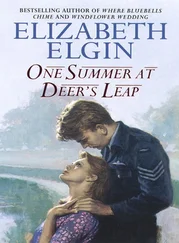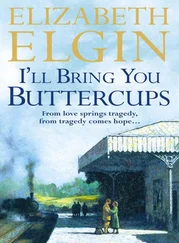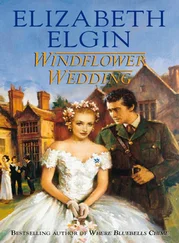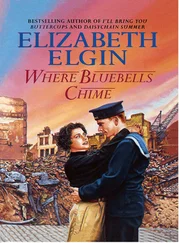ELIZABETH ELGIN
A Scent of Lavender

For my mother
Katie Wardley
and for
my first great-grandchild
Katie Hall
Cover
Title Page
Dedication
One
Two
Three
Four
Five
Six
Seven
Eight
Nine
Ten
Eleven
Twelve
Thirteen
Fourteen
Fifteen
Sixteen
Seventeen
Eighteen
Nineteen
Twenty
Twenty-One
Twenty-Two
Twenty-Three
Twenty-Four
Twenty-Five
Twenty-Six
Twenty-Seven
Keep Reading
About the Author
Also by the Author
Copyright
About the Publisher
1940
The month of June, and the world so impossibly beautiful that it hurt. Her world, that was; the little part of it that made her ache inside just to think she might lose it, now that losing Ladybower could happen. And losing Nun Ainsty, too, and everything that was dear and precious and familiar and safe.
Lorna flung her hat on the sofa then angrily tossed her prim white gloves to join it. Angrily, because she wasn’t getting her priorities right; because today her husband had gone to war and William going away into danger was surely more important than being invaded, even though invasion was a real possibility. Soon, some said. The tides were right. Stood to reason, didn’t it, that nothing would stop Hitler now.
‘What a time to be leaving you. God knows when I’ll get leave, the way things are.’ They had stood on the platform, waiting for doors to be slammed shut the length of the train, when couples would snatch one last kiss, whisper one last goodbye. ‘You’ll be all right, Lorna?’
‘Yes. You’re not to worry about me.’
Dammit, she wasn’t the only woman to see her husband go to war. Other wives managed, and so would she!
‘At least you’ll be all right for money – won’t go hungry waiting for the Army allowance to come through. You’re sure you can manage the bills?’
‘Yes, dear.’ William was talking pounds, shillings and pence again. ‘I do know how to write a cheque.’ She smiled to soften the rebuke.
‘And if you need help, there’s Gilbert and Nance, don’t forget. You’ve only got to ask, Nance said.’
‘Yes.’ Ask? Nance Ellery would be there in her WVS uniform, asked or not; self-appointed chatelaine of the village. And since the village had no resident vicar, Nance Ellery had taken to running the church, too, with a zeal fit to frighten St Philippa off her plinth. ‘You mustn’t worry about me, William. Take care of yourself. I’ll be fine.’ She wasn’t as helpless as he thought; she really wasn’t. All she wanted was the chance to prove it. ‘And I think it’s time …’ Doors were banging at the far end of the train.
‘Yes. Best be getting aboard.’ He reached for her, holding her close, patting her back, kissing her. ‘And I don’t want to be waved off. Too upsetting for you. Just give me a brave smile. No tears, eh?’
So they kissed once more and she waited until he was settled in the window seat of the first-class compartment, then held up a hand, wiggling her fingers in a gesture of goodbye. Then smiling tremulously she walked off, head high; was still smiling as she handed in her platform ticket.
And she would manage, she thought fiercely as she drove home. Grandpa had indulged her, then William had taken over. She had been a cosseted, obedient granddaughter and now, in the second year of her marriage was a cosseted, obedient wife. Nothing had changed. Not even her name. She walked down the aisle Lorna Hatherwood and had walked up it still Lorna Hatherwood. But when you marry a distant cousin, there’s a fair chance that you both share the same great-great-grandparents. And their name.
She drew in her breath then let it out slowly in an effort to sort out her muddled thoughts, find a reason for her dry-eyed lack of concern. And she should be concerned. Her husband had gone to war; she should be distressed and dismayed, and she was not, because William would be all right. William was always all right; he spent a great deal of time arranging his life so that absolutely nothing could or would dare to go wrong, even to joining the Army Reserve in 1938, when it was peace for our time, and Hitler had no more territorial demands in Europe. It was as if William knew a war would come and had set about arranging things to his best advantage.
He was an accountant, he had stressed, and it was a waste of a good brain to wait until war happened and he was forced to volunteer. And he was right, she supposed, because her husband would have made a poor job of being a foot soldier; would not have liked it one bit. So even before war was declared, William was a second lieutenant in the Royal Army Pay Corps of the Territorial Army, all set to become a barracks stanchion and to survive the fighting – if war happened, that was – whilst those less astute would stand a fair chance of being sent into danger. Or worse. And she did not blame him for doing such a thing, Lorna thought as she stuck out an arm and turned sharp right into the lane that led to Nun Ainsty. In his own mind he was doing his bit for King and Country, available for call-up long before his age group which, at thirty-two, probably wouldn’t have happened for many months. The fact that he had manoeuvred himself into a relatively safe job in the Pay Corps was up to him and his conscience, Lorna shrugged. As long as he was wearing a uniform she supposed it was all right. As always, William had got what he wanted and she would not weep for her loneliness. She would manage, she had vowed at the station, and discover for the first time in her twenty-three years what it was like to live her life without a man to protect her and smooth her way. Grandpa had gone to heaven and William had gone, nine months after war broke out, to the Pay Corps Somewhere in Wiltshire and from this minute on, Lorna Hatherwood had no one to look after her and no one to please but herself!
She fished in her pocket for her car keys and threw them to join the hat and gloves on the sofa, then gazed at the framed photograph of her husband in his uniform.
‘I’m not really as flippant as I’m trying to make out, William. I will miss you and I will worry about you even though you’ll be quite safe in Wiltshire for a time,’ she whispered. ‘But I need to find out what being my own woman is like, and not having to do what is expected of me, dear. I really do.’
Come to think of it, though, he didn’t have a lot of say in the matter. William was a long way away, and all alone. But then, if you thought about it, so was she.
She looked at the clock. Too early for lunch and anyway, she wasn’t hungry. Maybe a tin of soup, later on, and a chunk of bread. Right now, though, she was restless; she needed to come to terms with things, like William being a soldier for the duration and she being alone, rattling around in Ladybower like a pea in a tin can. Now, she must work out a timetable, eat three times a day as she had promised she would. Pity she couldn’t join something. She had thought, fleetingly, of asking Nance Ellery if the Women’s Voluntary Service needed anyone, but the thought of being bossed about by Nance put her off the idea. She would, of course, have to care for the garden now; seriously care for it and grow more vegetables as the government constantly reminded everyone. Digging for Victory, they called it.
Читать дальше













